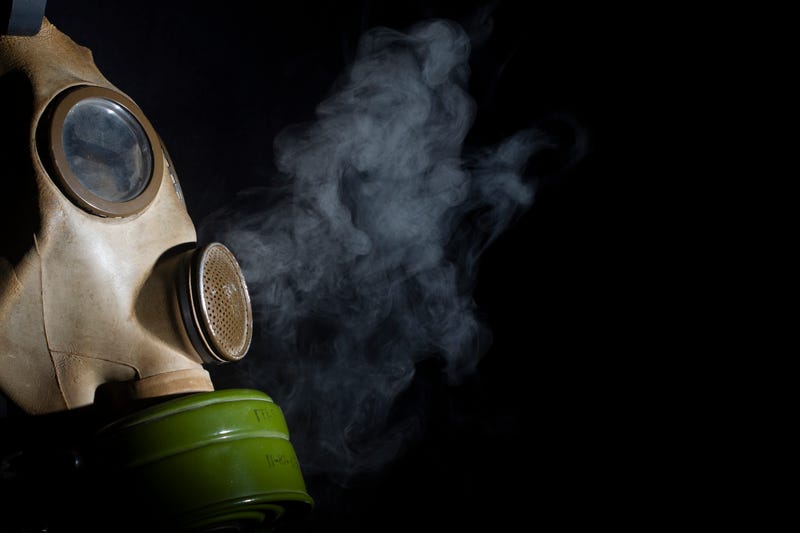
Last week saw an end to a rather dark time in the nation’s history as the United States officially destroyed the remainder of its stockpile of chemical weapons, some of which dated back to World War I.
Now, the U.S. is the last of eight countries to get rid of its declared stockpiles after the Chemical Weapons Convention, an arms control treaty that prohibited the manufacturing and stockpiling of such weapons, was ratified in 1997.
As for what this means for the country, KCBS Radio’s Liz Saint John spoke with David Koplow, a professor of law at the Georgetown University Law Center.
Koplow shared that this is a big deal for the U.S. as it had a “massive stockpile of chemical weapons” held across the country in eight different facilities.
“The process of getting rid of them has taken much longer than anticipated. So now, 11 years after the treaty’s deadline, the United States has finally come into compliance with the treaty,” Koplow said.
When it comes to why it has taken the country so long to get rid of the weapons, Koplow credits the missed deadline to the sheer size of the weapon stockpile and the means by which they have to be destroyed.
“It’s a hard job. These things are old and were never designed with the concept of dismantling them in mind,” Koplow said. “They were designed to be used, not to be retired. So people had to invent a new process for doing that, and it’s difficult.”
Another reason for the lengthy destruction process was where the stockpiles were located.
In total, the U.S. Army had eight different sites where it stored the weapons. At some, it was able to build state-of-the-art incinerators to destroy them properly, but at others, communities called for other methods, as they didn’t want a smokestack or possible damage to the area.
But now, more than a decade after it was supposed to have disposed of them, the U.S. has finally destroyed the remnants of a dark part of war.
When it comes to other countries and their chemical weapons, Koplow discussed Syria and its conspicuousness in violating the treaty, which requires countries to declare their chemical weapon facilities and stockpiles, as well as destroy what they have so that they won’t be used.
“Syria is the most conspicuous example of [those violating the treaty]. They’ve maintained the capability and used the capability of firing chemical weapons on their own population with horrifying frequency,” Koplow said.
But Syria doesn’t stand alone with its violation of the treaty.
“Russia has retained some chemical weapons capabilities that it’s used, North Korea, and they’re may be others as well,” Koplow said.
Koplow says it’s difficult for any international body to enforce regulations in other countries like Russia, but at some point, he says there has to be accountability.
DOWNLOAD the Audacy App
SIGN UP and follow KCBS Radio


